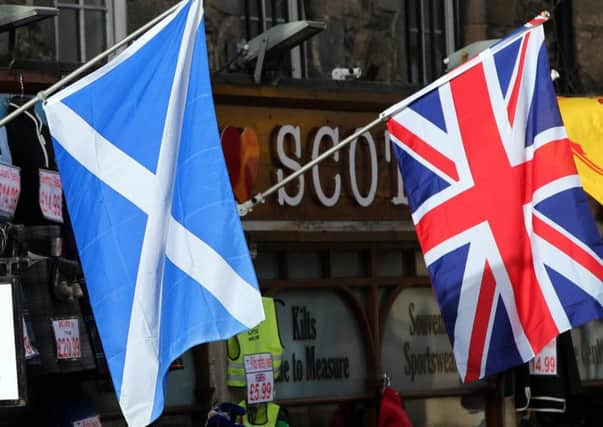Leaders: SNP must show voters ‘Plan B’


He was not alone in speaking as he did todaytoday. Both the shadow chancellor Ed Balls and Liberal Democrat Chief Secretary to the Treasury Danny Alexander also made clear they were opposed to the idea of currency sharing.
These statements go further than many had expected and their effect has been to move the argument from the technical considerations set out by Bank of England Governor Mark Carney firmly into the political realm. The position adopted by the three unionist parties is supported by the surprise publication of a trenchant memorandum from Sir Nicholas Macpherson, the top civil servant at the Treasury.
Advertisement
Hide AdAdvertisement
Hide AdThe SNP’s response has been less to engage with the objections raised than to question the motives of its opponents’ positions. The accusation is that these are “bully boy” tactics; that it is an attempt to intimidate Scots into voting No and that the apparently unequivocal stance of the unionist parties is a bluff.
However, asking Scottish voters to set aside these uncertainties and effectively call the Treasury’s bluff is a massive gamble and does little to repair the damage to the credibility of the SNP’s preferred currency option.
The SNP assumes that today’s statements will provoke a furious backlash in Scotland while public opinion in the rest of the UK will agree to a currency sharing arrangement in the face of deeply sobering eurozone experience, the cautious warnings of the Bank of England Governor, the advice of the top Treasury civil servant and now senior figures in the three main political parties at Westminster.
A currency sharing arrangement requires both sides to agree. If this is a “big ask” for Scottish voters, the SNP needs also to recognise that the views of taxpayers in the rest of the UK will also have to be taken into account – and they may baulk at any risk if there is no gain from their point of view. So far the SNP’s response has been to assert that business interests in rUK will be damaged and that there would be an adverse effect on the rUK balance of payments. It has also said that it may not honour Scotland’s pro rata share of UK debt.
The Treasury Permanent Secretary said today he did not consider the SNP’s warnings here as a credible threat: it would certainly have adverse consequences for Scotland in debt markets.
The onus is now on the Yes campaign to spell out its “Plan B” in the absence of formal currency union. The options include “free riding” on sterling without any say in policy; applying to join the euro; or adopting a new currency. Voters need to know what option is favoured in the light of today’s UK response even if the SNP really does believe that nothing has changed and this is just posturing.
Vigilance must be the watchword
Suspect packages sent to four army careers offices may have posed only a “very low-level threat” and were unlikely to cause significant damage. But they are nonetheless a troubling echo of darker days in our town centres, and a sobering reminder that we must remain continually vigilant against the activities of terrorists.
The latest developments follow the sending of letter bombs to armed forces recruitment centres in other areas of the south of England. Army staff have been asked to be “extra vigilant”. The attacks come less than a year after the horrific murder of off-duty soldier Lee Rigby in broad daylight in a south-east London street.
Advertisement
Hide AdAdvertisement
Hide AdThat gruesome attack was carried out by Islamist extremists, but last night Downing Street said the letter bombs bore “the hallmarks of Northern Ireland- related terrorism”. Extra care and security is now being exercised by mail handlers, those in sorting offices and by ordinary members of the public.
It is some time since the Northern Irish “troubles” visited violence on the streets of mainland Britain. If Downing Street’s suspicions are correct, this represents a deeply worrying development. It would leave our security services fighting on two flanks – one against rogue Irish republican elements and another against jihadists.
Small devices these parcel bombs may be, but their deployment across a wide area of southern England is troubling in its implications. It is critical, of course, that armed forces personnel are on alert against such attacks. But constant vigilance by the public is also both a requirement of public safety and an effective means of dealing with those who threaten us.